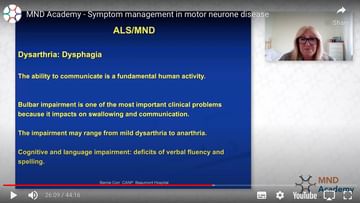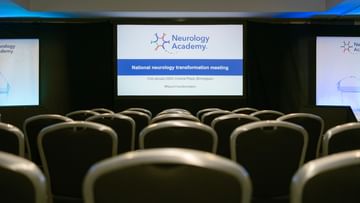Mental Health Awareness Week
Mental Health Awareness Week is coming to a close and this year’s focus has been body image. There has also been an abundance of focus on the commonality of mental health issues such as depression and anxiety as well as a renewed encouragement of our society to normalise mental health, to see it in as relevant a way as physical health.Neurological conditions are unique in that they crisscross both mental and physical health, with anxiety a common symptom of those with MS and up to half of those living with MS likely to experience depression according to the UK’s MS Society. Some people’s Parkinson’s can cause psychosis which, without a specialist knowledge of both the condition and the assorted medications that someone living with Parkinson’s is likely to be taking, can go untreated or be poorly managed.Those living with Parkinson’s can also experience depression as a direct result of the impact on the hormone dopamine that the condition affects, quite apart from the increased chances of depression resulting from a feeling of isolation or the impact of coming to terms with a life-long, progressive neurological condition. Parkinson’s UK note that nearly half of all those with Parkinson’s experience either depression or anxiety.As well as this, the link between mental health and cognitive health should not be overlooked. Depression is cited as one of the risk factors for developing dementia (Lancet 2017) and national head injury charity Headway note that brain injury ‘can result in the development of a mental health condition’ specifically noting an increased likelihood in developing schizophrenia, bipolar disorder and clinical depression. Some researchers have called for an end to the distinction between mental and neurological disorders noting that scientific understanding has changed and should be represented by grouping the two together under ‘disorders of the nervous system’ (White, 2012). Health thinktank The Kings Fund have also set out a compelling case for more integrated management across the two medical fields.We would like to use this Mental Health Awareness Week as an opportunity to encourage you to consider the way that your service and your local mental health service link together. Improving links across different elements of care, whether acute and community services, health and social care, inevitably provide a more holistic and integrated experience for patients.There are some brilliant examples of services across the country which have worked hard to create strong links across acute and mental health departments such as through strategic clinical networks and others where innovative solutions have been found to optimally support patients with mental health symptoms, such as in the case of managing Parkinson’s psychosis.By drawing on existing examples of good practice and thinking laterally about the way can patients access the support they need, we can improve the experiences - and the mental health - of those living with a neurological condition.
Related articles

13 Mar 2024
Knowledge
Swallowing Awareness Day

07 Feb 2024
News
Review and forecast: Academy highlights in brief
Uniquely practical education, producing specialist clinical leaders transforming local healthcare
Neurology Academy is an innovative educational provider for healthcare professionals including consultants, specialist nurses, pharmacists, therapists and other allied health professionals. Our courses are developed by practicing specialists who combine their experience and expertise into case-based learning designed to create specialists in their field with confidence in effecting change.
